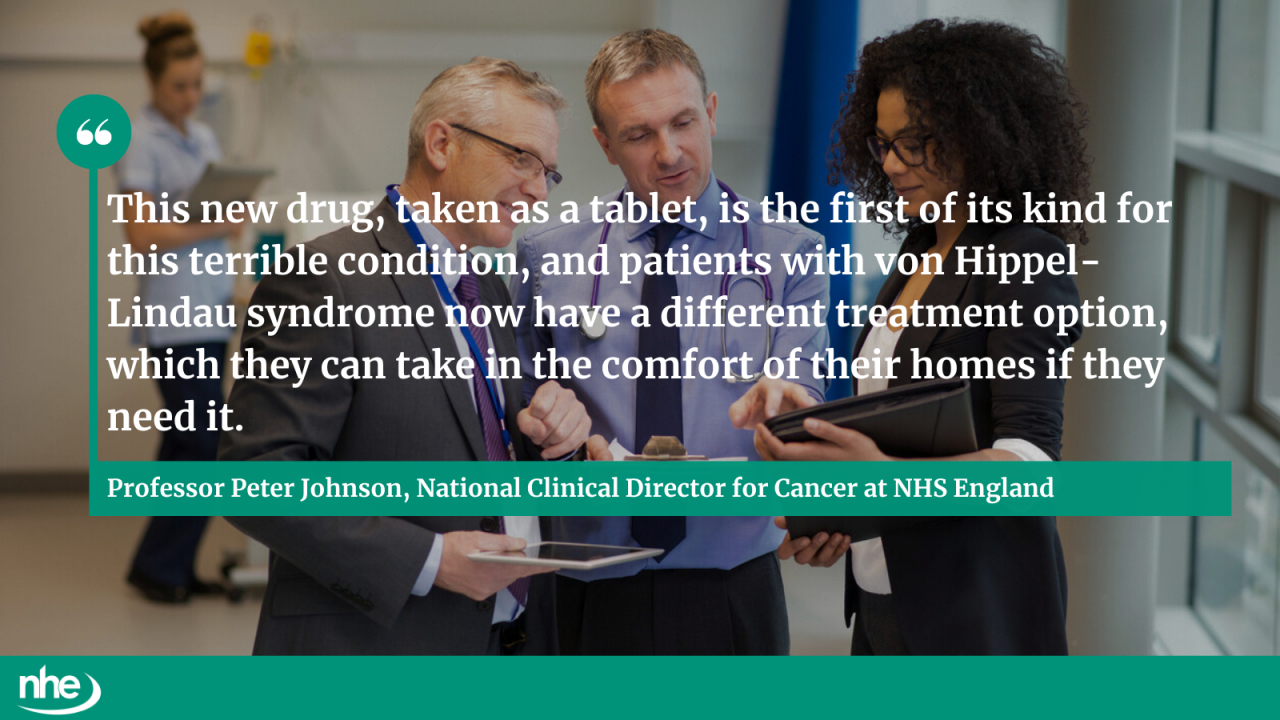The National Institute for Health and Care Excellence (NICE) has made two landmark approvals this week, with some patients set to gain access to a groundbreaking treatment for von Hippel-Lindau disease (VHL) while the 1000th medicine evaluation has been completed since the organisation’s inception.
VHL is a rare disease characterised as a mutation that causes proteins to grow abnormally which subsequently starves the cells of oxygen, in turn transforming them into tumours.
Award-winning innovation
Belzutifan, manufactured by MSD UK and sold as Welireg, is the first available treatment that inhibits the protein from starving the oxygen cells – research in this area won the Nobel Prize for Physiology and Medicine in 2019.
Clinical trials of the drug have shown that the vast majority (95%) of patients do not experience any growth in their tumours over a two-year period, while more than half (56%) of patients’ tumours shrink.
Following a positive decision by NICE, the treatment will be available through NHS England’s Cancer Drugs Fund programme so more evidence can be collected before the drug is approved for routine NHS use.

It is thought that 100 people will benefit from the drug in its first year of availability, and then 50 per annum thereafter.
Landmark milestone
“This new drug, taken as a tablet, is the first of its kind for this terrible condition, and patients with von Hippel-Lindau syndrome now have a different treatment option, which they can take in the comfort of their homes if they need it,” said NHSE’s national clinical cancer director, Professor Peter Johnson.
Current treatment for VHL includes only radiotherapy and invasive surgery. This new oral treatment is taken as a tablet three times a day.
NICE’s medicines evaluation director, Helen Knight, said: “This is a new treatment that has the potential to prevent loss of organ function from repeated tumours and surgeries and improve people’s quality of life at a price that is good value for the taxpayer.”
The news comes as NICE marks its 1000th medicine evaluation since April 1999 when it formed. Of the appraisals, more than four in five (84%) have been positive recommendations.
The 1000th came in the form of iptacopan – marketed as Fabhalta by Novartis – which is a new treatment option for adults with paroxysmal nocturnal haemoglobinuria with haemolytic anaemia.
Image credit: iStock



















